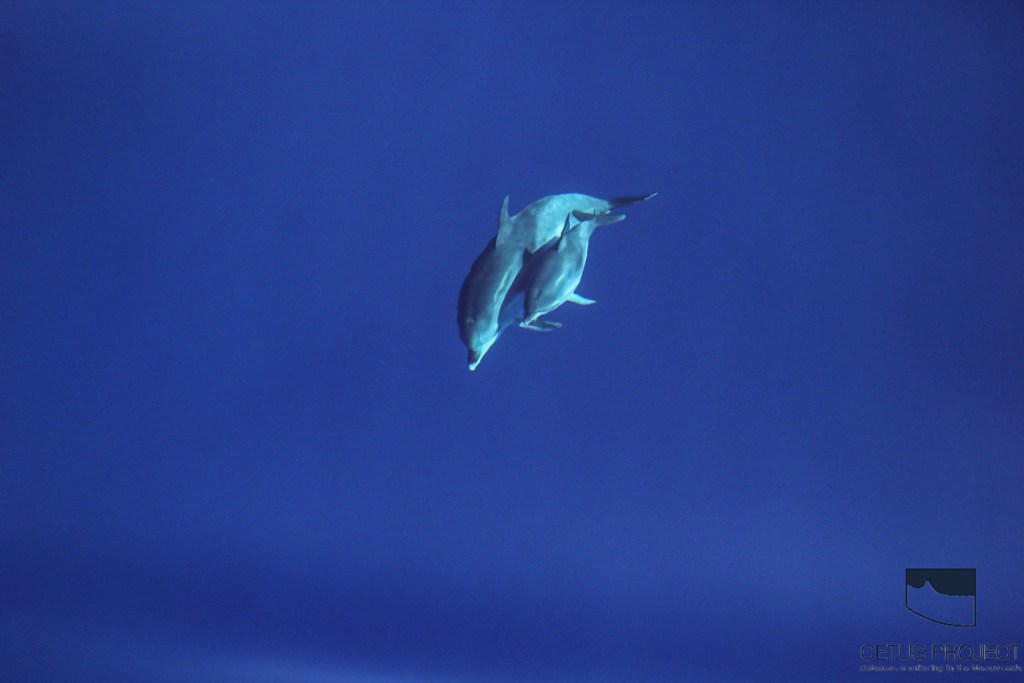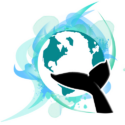Fadia Al Abbar is a 31 years-old half Dutch half Kuwaiti marine mammalogist. She is currently doing her PhD on common dolphins in the Azores. Here is her story…

Fadia’s education
A focus on policy making
I started my bachelor’s degree in environmental science, with a focus on policymaking at Utrecht University, in the Netherlands. I chose this degree because I grew up close to nature and as I learned from a young age, our earth needs more efforts on nature conservation. Although policymaking is extremely important in nature conservation, I realized it was not I was looking for.
The sea is calling…
After diving on all my holidays I realized that my degree had to take me to the sea no matter what. So I pursued a minor degree in marine ecology and brush-up courses at Wageningen University to get accepted into a master’s program in marine ecology. My Bsc. took me 4.5 years instead of 3 years. It was worth it though, because I got accepted into a great master’s program. I completed it in the 2 planned years, and it brought me to what I wanted to do; to be more in the field, study conservation and ecology, and focus on cetaceans. Today, I hold a Bsc. in Environmental Social Science and a Msc. in Aquaculture and Marine Resource Management.

Fadia’s internships all around the world
I did many internships. Perhaps too many! I found most of them through friends, colleagues, supervisors, and my network.
My first internship was during my gap year, after my bachelor’s degree. I started in the Philippines for about 3 months at LaMaVe, to study the whale shark population and the effects of tourism on their well-being. After this, I left for Malaysia where I did a 2 months internship on dolphin habitat distribution through transects with MareCet. I was so inspired by these trips and the team was so amazing that they were one of the reasons I continued to work with cetaceans.
During my master’s program, I did an internship on bottlenose dolphins in New Zealand for about 6 months. After this, I returned to the Netherlands to coordinate a field research project using acoustics and land-observations to monitor harbour porpoises. This project lasted 9 months at Wageningen Marine Research.

After I graduated, I went to Madagascar to help my friend identify whale sharks while she was setting up “The Madagascar whale shark project”. My friend and my Msc. advisors inspired me to set up my own research project. But where? that was still a big question mark. I got even more inspired after I attended the European Cetacean Conference (ECS) where I volunteered and met many like-minded people (and great friends until today!). There, I learned about CETUS project in Portugal. I embarked on cargo ships for 5 months to learn how to identify cetaceans around Macaronesia (Azores, Canaries, Cape Verde, & Madeira). After that, I became a guide on São Miguel, the Azores where I set up a pilot project on sperm whales.
What is Fadia’s current research about?
Putting together a PhD project
I am starting the process of becoming a PhD student. When I finished my master’s degree I thought “ok great, I can go and get a job now”. But I could not be more wrong… It all came down to proving myself again and again. Last year, I spent a year guiding and doing a pilot study on sperm whales by collecting behaviour and acoustics from the whale watching trips. This study unfortunately was not PhD project material.

When I was studying sperm whales, my colleague Laura Gonzalez and I encouraged the biologists’ team to start photo ID on common dolphins. Some of you may know that this is a hell of a job! The photo ID of the common dolphins had proven quite successful, so I changed my PhD topic to study the population and behavioural patterns of common dolphins in response to the swim-with-dolphin activity. I recently received a grant to start data collection, which came at the right time, considering I could not have a job or scholarship during this pandemic! My project is in collaboration with 3 different whale watching companies. My research team and I board boats without tourists, to study the common dolphins, with a drone.

The advantages and drawbacks of Fadia’s project
I am doing exactly what I love and am most interested in since I chose the topic myself, I have flexible hours, and I am in a place (São Miguel, Azores) that I really love. Wherever you go, you can see the ocean, and sometimes even a whale or dolphin from shore! It is a little paradise. However, I am currently living off the stipend from the grant, and I do not receive a salary. I did not get the last PhD scholarship that I applied for, so I am hoping that I will have more luck next year. I am living on the edge… My future, and the comfort of it, seems quite uncertain.
Fadia’s advices to aspiring whale scientists
Experience the field
I would tell future whale scientists to be creative. There is no single pathway to becoming a whale scientist. Getting out in the field is definitely a must, and unfortunately, that will involve some voluntary work, but there are paid internships and funding out there. Do not give up! Practical experience will also help you understand what struggles you are willing to accept in your career because there will be (quite) a few!
Transferable skills

I found out having skills that have nothing to do with marine biology can really make a person stand out. I wish I knew the importance of good writing skills for grant applications, because it is so important! Knowing how to be a mechanic or skipper can really help as well. Statistics, modelling, and coding are other important skills that can really help for research. The above-mentioned are some ideas. I also wish to tell you: try not to beat yourself up for getting rejected (which is hard, believe me, I know).
Communicate
I also believe that communication through i.e. marketing and social-media of your work is important to reach a broader public and to allow other (non-scientific) fields to understand the importance of your work. This is why I created my own page where we discuss my project on common dolphins in the Azores.
Network
It is always possible to do whale science, and you could even start by doing this on the side of a paying job or part-time, which may open up an opportunity. Conferences would be key to stay up to date and meet amazing people, where you can discuss struggles, ideas, brainstorm with experts and peers, and celebrate small achievements! Be patient, make sure you prioritize your health, don’t be afraid of taking a (sometimes much needed) break, and don’t give up!
What will the future look like for Fadia?
Hmmmm I don’t usually look too far into the future, especially not now (COVID-19). I hope that I will get a PhD scholarship and have a salary to do my PhD, or that I would get some other grants to live comfortably off, in order to finish my PhD. After the PhD I would consider a post-doc or continue research on cetaceans by founding my own NGO, perhaps with grants, perhaps with a part-time job, I am flexible!

Chasing after an invisible sperm whale
Last year we wanted to test the feasibility of recording sperm whales from a sailing boat. So we headed out, very dedicated, at 4 am, to be far enough out at sea to perhaps detect a sperm whale with the hydrophone. Once we were out, we tested the hydrophone a couple of times. At some point, we heard clicking. The sound was very faint, but we got very excited, thinking this could be a sperm whale!!!
We tried to go into a direction to see if the sound became fainter, or louder. Then we traveled for another hour, but the sound was still the same… We thought it could not be possible. We wondered if it could be the sound from a clock on the boat. So we went down to the deck and turned off every single clock that was there. When we tested the hydrophone again, we were still hearing a click. We kept searching the boat, trying to understand where this sound could come from. I felt like Captain Hook, obsessed with the clicking of the crocodile’s clock.


I can tell you that we never found the source of the sound, nor did we find a sperm whale… But you know what? I think “what a typical #fieldworkfail“!
We would like to warmly thank Fadia for sharing her story and her tips with us. You can contact Fadia down below and make sure to follow her page: The Azores Delphis Project on Instagram and Facebook!
